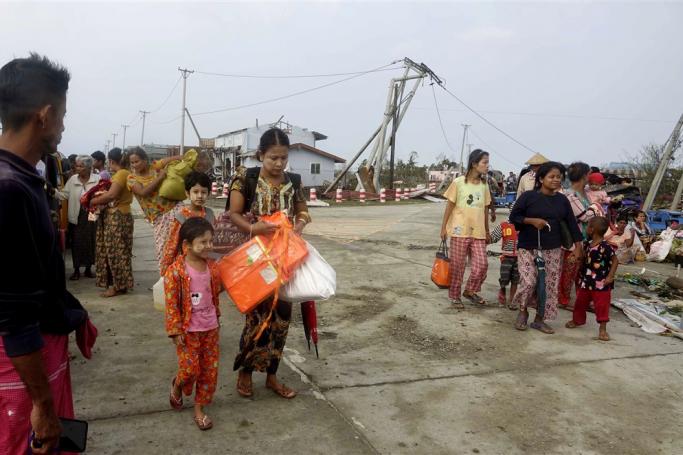Women and children are reportedly exposed as humanitarian aid work continues in Rakhine State in the wake of Cyclone Mocha, ReliefWeb reports.
Cyclone Mocha, one of the most powerful storms ever to hit Myanmar, affecting an estimated 3.4 million people, hit land around 14 May. Howling winds tore homes to pieces, while torrential downpours and a dangerous storm surge submerged areas along the coast, flooding villages and leaving hundreds of thousands of vulnerable people without shelter.
Six weeks later, aid and humanitarian support is proving slow to arrive, and the most vulnerable are women and children.
To reach women and girls in even the most inaccessible areas, UNFPA is supporting mobile clinics across nine villages in Sittwe township, providing assistance such as health check-ups, prenatal and postnatal care, family planning and psychosocial support, according to ReliefWeb. These clinics, already operated by UNFPA partners before the cyclone, help ensure those grappling with the crisis can receive critical sexual and reproductive health care.
Reaching people in need was already a challenge in parts of both Rakhine and the northwest due to ongoing conflict and restrictions on movement and supply transportation, and now roads and bridges have been destroyed by flooding. As UN OCHA was reporting, Myanmar red tape has been blocking or slowing the delivery of assistance from abroad.
Over a month on from the cyclone, humanitarian needs in cyclone-struck areas are enormous. Those affected include some 432,000 women and girls of reproductive age, including over 20,700 who are currently pregnant; around 2,300 of these women were due to give birth over the past month, in the chaotic aftermath of the crisis.
Mya Khin, 37, from the Min Hla village in Sittwe said: “I am nine months pregnant. My house was severely damaged by the cyclone […] What I need most is quality health care for a safe delivery. I am very happy that this mobile clinic is reaching us at this critical time. I received the services and information that are important for my pregnancy.”
Dr Win Zaw Tun, a medical officer with the Myanmar Medical Association in Say Thamar Kyi village in Sittwe, explained the gravity of the situation many are facing.
As one female doctor in a village outside Sittwe explained, pregnant women can experience many health-related issues unless services are available. Women with high-risk pregnancies are more likely to critical condition. They need continuous care and even early referral in case of emergency.
The storm also disrupted community support systems and services to prevent and respond to gender-based violence. Most of the UNFPA-supported safe spaces for women and girls in central and northern Rakhine have been damaged, while power outages, dilapidated water and toilet facilities and overcrowded living conditions that lack privacy, sanitation and proper lighting are exacerbating these risks.
With the scale of the needs in Myanmar, UNFPA urgently requires funding to support sexual and reproductive health services, including gender-based violence response and mental health and psychosocial support, rehabilitating health facilities, deploying trained midwives and other critical cadres and procuring essential medicines, clean delivery kits and dignity kits.
The message from aid workers is that with the serious gaps in health infrastructure, it is imperative to ensure emergency sexual and reproductive health services to help prevent maternal deaths, sexual violence, unwanted pregnancies and sexually transmitted diseases, including HIV.












